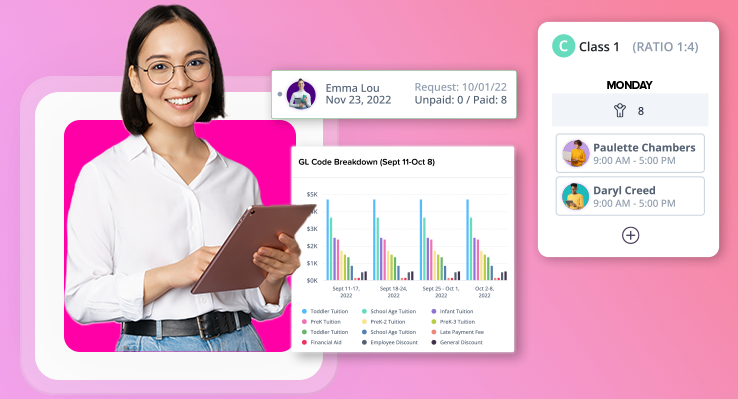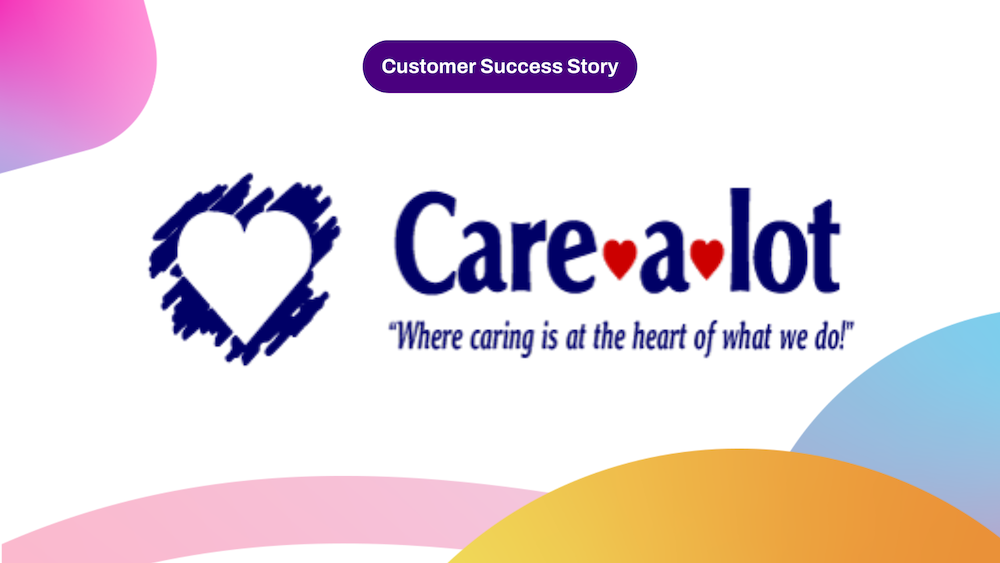Workplace culture is one of the most important priorities for job seekers. In fact, Millennial candidates prioritize ‘people and culture fit’ above everything else. (teamstage.io) With the current challenges around hiring and retention, having a strong company culture plays a big role in attracting quality staff members. However, it’s not always easy to measure the quality and effectiveness of your culture. In this article, we’ll identify ways you can measure your culture based on five different metrics.
1. Retention Rates
Retention rates can tell you how your company is performing by how many employees are leaving versus staying. If your retention rates are high and your staff continues to stay at your center, you can attribute that to a strong company culture and a positive working environment.
Retention rates are typically measured annually by dividing the number of employees with one year or more of service by the number of staff in those positions one year ago. Here’s a formula to help you get started:
(Remaining Headcount During Set Period ÷ Starting Headcount During Set Period) x 100
The higher the retention rate, the better. For more information on improving retention rates, click here.
2. Happiness Interview
Conduct Happiness Interviews on a regular basis to understand how your staff members feel about your center, their role, and your company culture. Happiness Interviews help you better understand your employees and allow you to make changes before they leave.
Retaining your employees is incredibly important not only for maintaining a strong culture but also for saving money. Studies show that it costs 6-9 months' salary every time a salaried employee is replaced. Furthermore, 50% of new hires leave companies within the first 18 months. (Webinar: Hiring for Culture by Beth Cannon) Conducting Happiness Interviews gives you insight into your staff’s feelings and gives you a better understanding of your center’s working environment.
Download a free Happiness Interview template here.
3. Referrals and Reviews
If your staff members refer potential employees or families to your center, that’s a strong indication that your center has a positive culture. The same goes for reviews. If your employees leave positive reviews on Google or social media, you know your center is a great place to work. Track how many referrals and reviews you have gotten from staff members as another indicator of your culture’s effectiveness.
4. Employee Panels
Be actively involved in employee feedback by hosting employee panels. These roundtable discussions provide a welcoming environment for any comments, questions, or concerns. By having this open dialogue, you will be able to understand what your center is doing well and where you can improve. How involved and engaged your staff is can be another indication of your center’s culture. If your staff are willing to give feedback, they are invested in your center and its success.
5. eNPS Scores
eNPS scores, or Employee Net Promoter Scores, are another metric you can track to see how satisfied your staff are at your center. An eNPS survey asks one question: ‘‘On a scale of 0-10, how likely are you to recommend this company’s products and services to others?’ Employees who answer 9-10 are promoters, 7-8 are passive, and 0-6 are detractors.
To calculate your eNPS based on these scores, use this formula:
eNPS = percentage of Promoters minus percentage of Detractors
The higher your NPS score, the more likely your staff are to recommend your center, meaning your center is quality and has a strong culture.
All of these metrics give you a better understanding of the effectiveness of your childcare center’s culture. If you’re looking to improve the culture at your center, click here.
Kangarootime is the leading all-in-one childcare management software for daycares and preschools. With billing and invoicing capabilities, parent communication and staff management tools, and classroom automation, Kangarootime helps childcare centers grow and scale. To learn more about optimizing your center with Kangarootime, visit kangarootime.com













